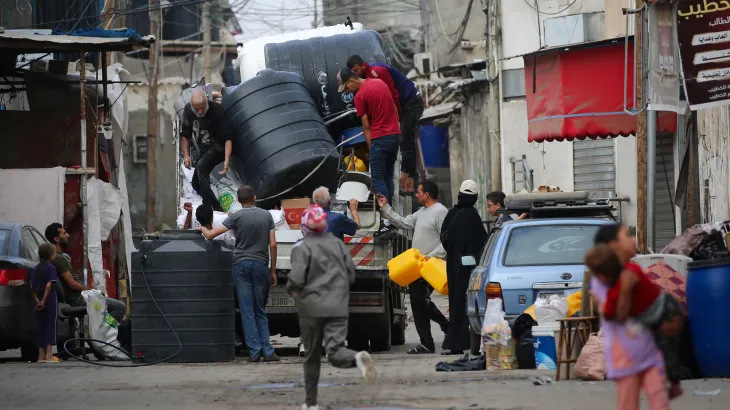Evacuation of Khan Yunis would have multifaceted impacts on the region. Firstly, such an order by Israeli army would likely result in significant disruption to the daily lives of the residents. Thousands of people would be forced to leave their homes, creating a humanitarian crisis. The evacuation would likely strain local resources, as displaced individuals would need food, water, and shelter. This sudden displacement could also lead to overcrowding in surrounding areas, exacerbating existing social and economic tensions.
The evacuation could trigger widespread panic and fear among the residents. People might scramble to gather their belongings and secure transportation, leading to chaos and confusion. The roads out of Khan Yunis could become congested, making it difficult for emergency services to operate effectively. In the midst of this turmoil, vulnerable populations, such as the elderly, disabled, and children, would face heightened risks. The mental and emotional stress on the evacuees would be immense, potentially leading to long-term psychological effects.
From a political perspective, the evacuation could further inflame tensions between Israelis and Palestinians. The forced removal of residents could be seen as a violation of their rights, fueling resentment and anger. This action might provoke protests and clashes, both within Khan Yunis and in other parts of the Gaza Strip. The international community could respond with condemnation, viewing the evacuation as a disproportionate measure that exacerbates the conflict. Diplomatic relations between Israel and other countries, particularly those sympathetic to the Palestinian cause, could become strained.
The economic impact of the evacuation would also be significant. Businesses in Khan Yunis would suffer as they are abandoned or damaged during the evacuation. The disruption to daily life would halt economic activities, affecting livelihoods and deepening poverty. The cost of relocating and supporting displaced individuals would place a heavy burden on humanitarian organizations and local authorities. In the long term, rebuilding efforts would be necessary, requiring substantial financial resources and international aid.
The security dynamics in the region could shift as a result of the evacuation. The Israeli army’s presence in Khan Yunis serves as a deterrent to militant activities. Removing the troops might embolden militant groups, leading to an escalation in violence. This could result in increased rocket attacks or other forms of aggression, prompting further military responses from Israel. The cycle of violence could intensify, with civilians on both sides bearing the brunt of the conflict. The evacuation might also impact the Israeli army’s strategic positioning, necessitating adjustments in their operational plans.
The humanitarian crisis resulting from the evacuation would demand a coordinated response from international organizations and aid agencies. Ensuring that evacuees have access to basic necessities would be a priority. Temporary shelters would need to be established, and medical care would be crucial, particularly for those injured during the evacuation. Psychosocial support services would be necessary to help individuals cope with the trauma. The logistical challenges of providing aid in a conflict zone would complicate these efforts, requiring careful planning and cooperation among various stakeholders.
The evacuation could also affect the social fabric of Khan Yunis. Communities that have lived together for generations might be torn apart as families are forced to relocate to different areas. The loss of homes and familiar surroundings would be deeply distressing, leading to a sense of displacement and loss. Rebuilding community bonds in new locations would take time and effort. Social services would need to be mobilized to support integration and cohesion among displaced populations.
In the broader context of the Israeli-Palestinian conflict, the evacuation of Khan Yunis could influence peace efforts and negotiations. Such a drastic measure might be seen as a setback to any progress towards a two-state solution. Trust between the parties would erode further, making dialogue and compromise more difficult. International mediators would face greater challenges in bringing the sides back to the negotiating table. The evacuation might also shift public opinion, both within Israel and the Palestinian territories, affecting political dynamics and election outcomes.
In summary, the immediate evacuation of Khan Yunis by the Israeli army would have wide-ranging and profound impacts. The humanitarian crisis, economic disruption, and social upheaval would pose significant challenges to the residents and surrounding areas. The political and security implications would further complicate the already tense Israeli-Palestinian conflict. Addressing the needs of the displaced population and mitigating the fallout from the evacuation would require concerted efforts from local authorities, international organizations, and aid agencies. The long-term consequences of such an action would shape the region’s future, influencing peace efforts and the lives of countless individuals.
4o



Leave a Reply